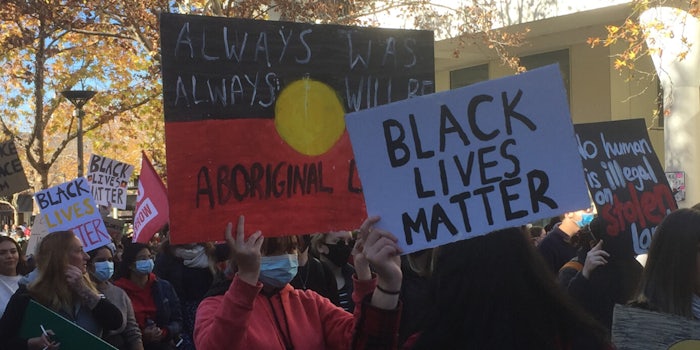
21 July 2015
A new report released today argues that the cycle of extreme disadvantage needs to be tackled at the local level and solutions must be community-led in order to be effective in the long-term.
The ‘Dropping off the Edge Report’, jointly commissioned by Jesuit Social Services and Catholic Social Services Australia, is an Australian-wide study and uses 25 indicators or ‘signposts’ to identify levels of disadvantage. When examined together, these indicators point to areas of concentrated disadvantage. The report highlights that, in areas with high levels of social and economic disadvantage, there are also often high levels of interaction with the criminal justice system as well as high levels of family violence. Many of the communities identified in the report as most disadvantaged are Aboriginal.
The National Justice Coalition (NJC) is a group of leading Aboriginal and Torres Strait Islander, community and human rights organisations working collaboratively to address the disproportionate rates of incarceration and violence experienced by Indigenous Australians. NJC Co-Chair Shane Duffy said the new report confirmed much of the Coalition’s messaging through its Change the Record campaign.
“Underlying socio-economic disadvantage such as poverty, low education levels, drug and alcohol abuse, and disability are key drivers of imprisonment levels and rates of violence,” Mr Duffy said. “So we need a place-based approach, which invests in tackling these underlying causes and building strong and healthy communities”.
“The majority of current approaches are just sticking band-aids over the problems – what we really need is long-term investment in early intervention, prevention and diversion strategies. These are smarter solutions that increase safety; address the root causes of violence against women, cut reoffending and imprisonment rates, and build stronger and safer communities. To be honest, we can’t afford to keep doing what we’re doing. We need to introduce positive community-led measures.”
The community of Bourke, one of the areas identified in the Report as being one of the most disadvantaged post codes has already started to make positive changes through a community-led justice reinvestment pilot.
Fellow NJC Co-Chair Kirstie Parker said that, while it was early days yet – generational disadvantage doesn’t go away over-night – Bourke was good example of a community coming together to find solutions.
“And the early results are very encouraging,” Ms Parker said. “It is imperative that we continue to look to examples such as Bourke, in addressing these social issues.
“In order to address this disadvantage, we need commitment at both the state and territory and Commonwealth government levels. This must be more than an expression of concern or one off–funding. There are no quick fixes here. We need sustained commitment of targeted place-based investment into communities.
“Empowerment is key to addressing the entrenched disadvantage that many Aboriginal and Torres Strait Islander communities face. We can’t write whole communities off – we must work with Aboriginal and Torres Strait Islander people to change the record for a better tomorrow.”
- ENDS-
Shane Duffy and Kirstie Parker are Co-Chairs of the National Justice Coalition. Shane Duffy is also Chair of National Aboriginal and Torres Strait Islander Legal Services (NATSILS), while Kirstie Parker is also Co-Chair of the National Congress of Australia’s First Peoples
To find out more about the National Justice Coalition’s ‘Change the Record’ campaign please go to: www.changetherecord.org.au
